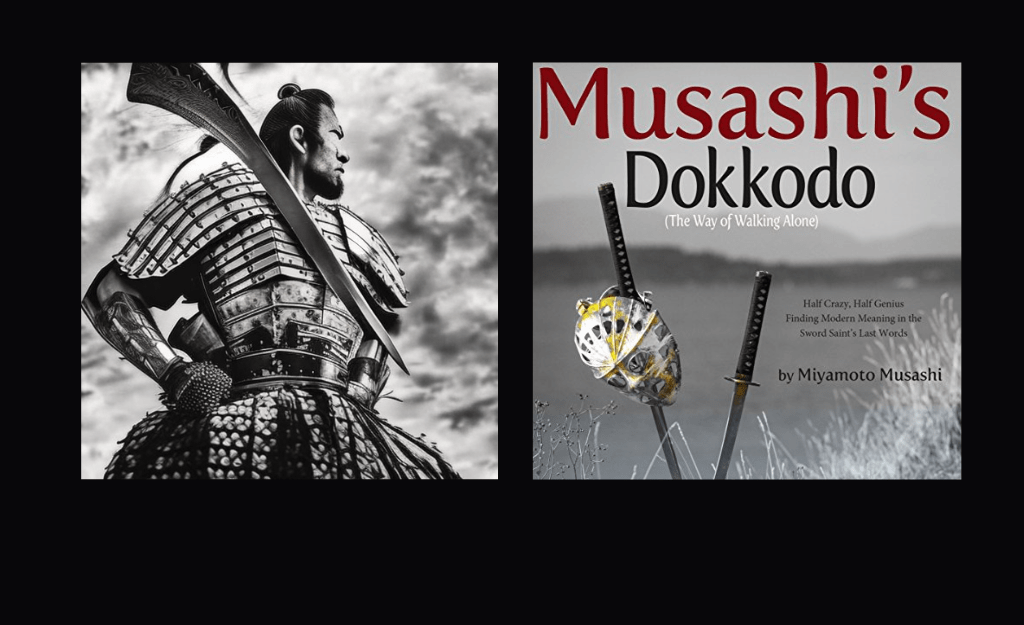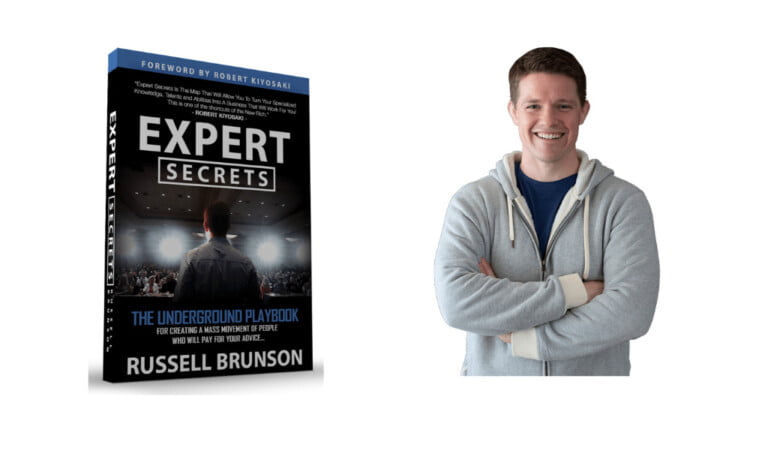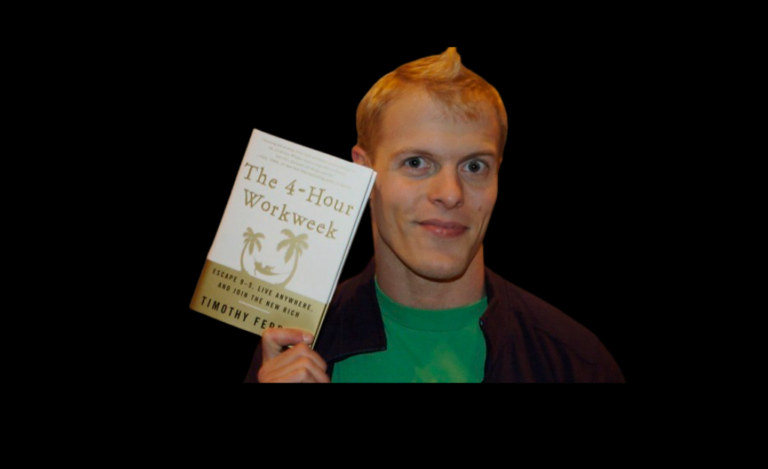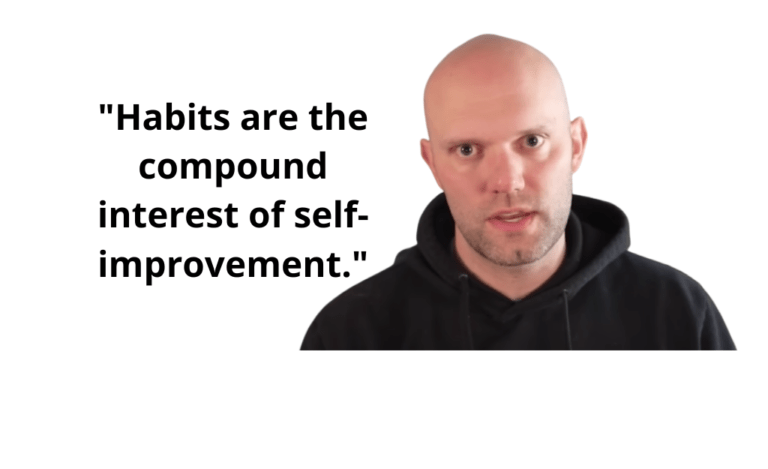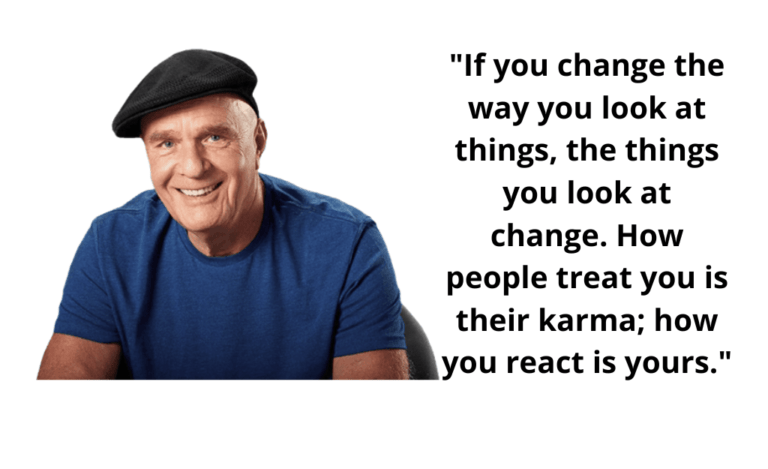Disclaimer: This post may contain affiliate links. For more information, please visit our Disclaimer Page.
Introduction
“21 Rules for Life” by Miyamoto Musashi – “Way of Walking Alone | Dokkodo” is a book that explores the timeless wisdom of the Japanese swordsman, philosopher, and writer Miyamoto Musashi.
Musashi is best known for his treatise “The Book of Five Rings,” which outlines his philosophy on swordsmanship and strategy.
The Dokkodo, or “Way of Walking Alone,” is a shorter work attributed to Musashi that consists of 21 rules or principles for living a fulfilling and meaningful life. In this book, the authors summarize and interpret these 21 rules, drawing on Musashi’s insights and teachings to offer practical guidance for personal growth and happiness.
Whether you seek wisdom on handling difficult emotions, living a meaningful life, or overcoming obstacles, “21 Rules for Life by Miyamoto Musashi – Way of Walking Alone | Dokkodo Summary” offers valuable insights and inspiration.
Rule 1: Don’t change a thing; embrace reality as it is

“For after all, the best thing one can do when it is raining is let it rain.”- Henry Wadsworth Longfellow
The Dokkodo holds acceptance as one of its core tenets. Musashi tells us that we may find happiness and fulfillment by learning to accept things as they are. This implies accepting the world and its people as they are without trying to alter them.
Learning to be at peace and content in the here and now requires surrendering to reality and accepting the facts as they currently are. This doesn’t imply we should take things at face value and never question or challenge them. Still, we should develop a less rigid connection to outcomes and more flexibility in dealing with reality.
When we surrender to reality, we can release the unpleasant thoughts and feelings from trying to change it. Because of its potency in this way, acceptance is vital in pursuing happiness and contentment inside oneself.
“Life is a series of natural and spontaneous changes. Don’t resist them; that only creates sorrow. Let reality be reality. Let things flow naturally forward in whatever way they like.” Lao Tzu
Rule 2: Don’t pursue happiness for its own sake

“Do not lose the treasure of yourself for the pleasure of senses.” Swami Parthasarathy
Integral to the Dokkodo is the idea that everything should be done in moderation. Musashi warns against the excess and discord that might result from seeking pleasure for its own sake.
Indulging in moments of joy and contentment is fine, but we shouldn’t make them our top priority. Constantly seeking and indulging in pleasure to the exclusion of all else can cause one to lose sight of what is essential and turn them into a slave to their own desires.
Musashi recommends choosing a healthy middle ground and indulging in moderate pleasure. Instead of always pursuing pleasure, we may discover permanent contentment and fulfillment by developing a sense of equilibrium and direction.
Rule 3: Never base your actions on a single emotion

“The storms will come, and the winds will rise, and the gusts will threaten to pull you from your roots. Let the winds come. Let them rage and know that you will not break in the breeze; you will bend. Bend. Always bend because you are made of more strength than you know because you are better than the breaking.” – Tyler Knott Gregson
Musashi warns us in the Dokkodo not to base our judgments on fleeting sentiments or only a portion of the available information. Feelings and emotions are potent and influential, yet they are also mercurial and untrustworthy.
When we base our decisions on how we’re feeling at the moment, rather than taking the time to consider the consequences carefully, we run the danger of acting in a way that isn’t in our best interests.
Musashi suggests we train ourselves to maintain a state of mental serenity and clarity and make decisions after giving them due thought. Making well-considered, unbiased judgments depends on using one’s reasoning intellect rather than emotions.
This doesn’t imply we should ignore our feelings; instead, we should work toward a point of harmony where our cognitive and emotional selves may coexist and contribute to our decision-making.
”Everyone takes the limits of his own vision for the limits of the world.” – Arthur Schopenhauer
Rule 4: Think lightly of yourself and deeply of the world
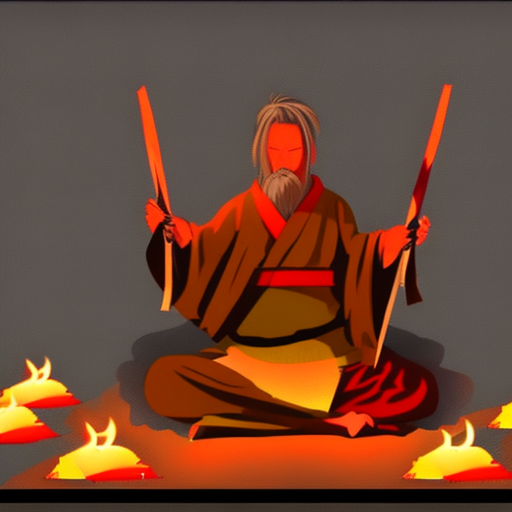
“Selfish people tend only to be good to themselves; then are surprised when they are alone.” Steve Maraboli
Musashi encourages readers of the Dokkodo to keep an open mind and a sense of modesty. He says to take yourself and life in general with a grain of salt.
This doesn’t imply we should discount our intelligence or skills, but it does mean we should acknowledge our limits and be receptive to the wisdom of others around us. Musashi also suggests we have an inquisitive and awestruck outlook on life.
Humility and receptivity to new experiences and perspectives are the seeds from which growth and development might sprout. Adopting such a mindset may give us a fresh perspective on life and be more receptive to new information.
Rule 5: Be detached from desire your whole life

“Detachment is not giving up the things in this world, but accepting the fact and to be continuously aware that nothing is permanent.” – Aditya Ajmer
The Dokkodo emphasizes the importance of releasing attachments to material belongings to gain enlightenment. Musashi advises that sticking to desires, even as we age, can only lead to suffering and disappointment.
Giving up a want may reduce the mental and emotional agony that comes with having too many desires. Rather than attempting to suppress or reject our desires, we should focus on cultivating a sense of detachment and non-attachment. Rather than continually looking ahead and wishing for the better, we might cultivate a sense of detachment and learn to be content and at peace precisely where we are.
This can help us avoid the anguish of clinging to worldly items and people, allowing us to live a more purposeful and happier life.
“Sometimes, it’s not enough to just close your eyes; you have to learn to detach yourself from the situation.” – Melody Beattie
Rule 6: Do not regret what you have done

“At the end of the day, let there be no excuses, no explanations, no regrets.” ― Steve Maraboli
Musashi encourages us to forget about the past and concentrate on living here and now throughout the Dokkodo. When we think back on actions or choices we made in the past and wish things had gone differently, a frequent emotion that we experience is regret.
Musashi tells us that although it is normal for us to have regrets, we should let go of them since they can prevent us from going forward and keep us stuck in the past. We can release ourselves from the weight of the past and be able to concentrate on the here and now if we can let go of regret.
This does not imply that we should mindlessly reject the lessons of the past or make the same mistakes again. Instead, it suggests that we should learn from our previous experiences and let go of any bad feelings or beliefs that may prevent us from moving forward. We can discover freedom and peace in the here and now if we let go of any regrets we may have.
Rule 7: Never be jealous

“Life is one big road with lots of signs. So when you ride through the ruts, don’t complicate your mind. Flee from hate, mischief, and jealousy. Don’t bury your thoughts; put your vision into reality. Wake Up and Live!-Bob Marley
One of the worst emotions you can have is jealousy, which can make you feel resentful and inadequate. You must put envy aside and concentrate on your own personal growth and development if you actually want to live a fulfilling life.
Instead of being comfortable and sincerely happy about others’ accomplishments and well-being, envy can cause destructive behavior and keep you from celebrating others’ success.
You may improve your relationships, become more pleased with what you have, and be able to concentrate on your own goals without being sidetracked by others if you learn to let go of envy.
The secret is not to compare oneself to others and concentrate on personal development. The secret to success is liking what you do instead of trying to have what or who others have.
“Give so much time to the improvement of yourself so that you have no time to criticize or focus on what others are.” in Robin Sharma‘s book, The 5 AM Club: Own Your Morning, Elevate Your Life.
Rule 8: Never let yourself be saddened by a separation

“Very little is needed to make a happy life; it is all within yourself, in your way of thinking.” Marcus Aurelius
Losing loved ones, friends, or things can be heartbreaking and emotionally taxing. But it’s crucial to realize that everything is merely transient and that change is inevitable. Too much attachment to people or things can cause unhappiness and disappointment after a breakup.
You may let go of your attachment to things and stop getting upset when things end by acknowledging that everything is transient. Instead, you can live in the present and be grateful for the time you spent with the object or person that has since passed away.
Remember that suffering a loss or a separation can also be a chance for personal and professional growth.
Additionally, moving past the past will enable you to be open to new opportunities and relationships without being constrained by grief and regret.
Rule 9: Resentment and complaint are appropriate neither for oneself nor others

“Nothing on earth consumes a man more quickly than the passion of resentment”- Fredrick Nietzsche
Holding onto resentment and complaining about others or yourself is unproductive and can negatively affect your mental and emotional well-being.
Resentments and complaints keep you stuck in the past and prevent you from moving forward. Instead of dwelling on what went wrong or what could have been, it’s essential to focus on what you can do to improve your current situation.
By letting go of resentment and complaints, you will be able to see things more clearly and take responsibility for your own actions. This will allow you to proactively resolve any issues rather than dwelling on negative emotions. Also, this will help you develop a more optimistic outlook, which is essential for personal growth and development.
Furthermore, complaining about others and gossiping will not only harm relationships but also show a lack of maturity, responsibility, and integrity. On the other hand, showing empathy, kindness, and understanding towards others will help to build trust and respectful relationships.
“Maturity is when you stop complaining and making excuses in your life; you realize everything that happens in life is a result of the previous choice you’ve made and start making new choices to change your life.” Roy T. Bennett
Rule 10: Do not let yourself be guided by the feeling of lust or love
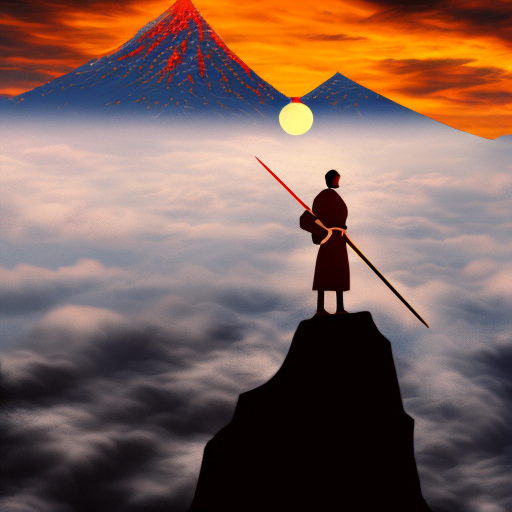
“Lust is a very loyal servant but a very dangerous master. A master that will turn you into a monster, capable of committing sins without any regret.” Mohit Sharma
The Dokkodo teaches us that balancing our interpersonal interactions is crucial and not letting our emotions get the better. Musashi warns us that we should not allow ourselves to be led by powerful emotions like passion or love, as they might cloud our judgment and cause us to make poor decisions.
Achieving a state of equilibrium and detachment allows us to govern our emotions less and make more considered choices. Rather than trying to shut down or disregard our sexual desires entirely, we should strike a healthy balance between our impulses and our logical reasoning.
Doing so allows us to make decisions that are less prone to being swayed by our emotions and are instead based on reason and consideration.
“Lust is a poor, weak, whimpering, whispering thing compared with that richness and energy of desire which will arise when lust has been killed.” C. S. Lewis
Rule 11: In all things, have no preferences

“The Great Way is not difficult for those who have no preferences. When love and hate are both absent, everything becomes clear and undisguised. Make the smallest distinction, however, and heaven and earth are set infinitely apart. If you wish to see the truth, then hold no opinion for or against it. The struggle of what one likes and what one dislikes are the disease of the mind.”- Sengstan
Preferences can cause attachment and a closed-minded viewpoint. Preferences prevent you from examining all possibilities and may cause you to pass up opportunities that don’t fit your preferences. Additionally, when things don’t turn out how you had hoped or when you don’t receive what you want, having preferences can cause disappointment.
You can explore new alternatives and approach each circumstance with a more open and unbiased perspective by letting go of your biases. Your decision-making will improve as a result, as will your capacity for change. Additionally, it enables you to give everything the same amount of attention, allowing for equal opportunities for understanding, appreciation, and evaluation.
Additionally, a lack of preferences entails a lack of prejudice and judgment, enabling you to view situations objectively, comprehend various viewpoints, and cultivate more peaceful interpersonal interactions.
It’s critical to remember that this does not negate the importance of having objectives and aspirations; rather, it simply means that you should approach everything with impartiality and openness.
Rule 12: Be indifferent to where you live

“It doesn’t matter much where you live. It only matters how well you live when you’re there”. Unknown
Being unattached to an area or location entails not caring where you reside. Attachment to a certain location can make adapting to change challenging and keep you from reaping the rewards of other locations.
Being unconcerned with where you reside makes you more adaptable and receptive to new chances that may present themselves, whether they involve a new career in a different city or an exciting new trip to a foreign nation. Additionally, you’ll be able to recognize the unique qualities and attractiveness of many locations.
Being unconcerned with where you reside also means that your inner strength, ideals, and activities define you rather than your surroundings or environment. Consequently, being able to find solace, joy, and happiness wherever you are
You will be able to concentrate more on the things that matter in life and that you can control, such as your thinking, attitude, and how you choose to spend your time if you don’t let your physical surroundings determine your pleasure and well-being.
Rule 13: Do not pursue the taste of good food

“The food you eat can be either the safest and most powerful form of medicine or the slowest form of poison.” Ann Wigmore
No one can argue against the enjoyment of delicious cuisine. The thought of dinner brings joy to the minds of most people. I don’t think Miyamoto Musashi meant for us to starve. This rule of thumb recommends cutting out other motivations for eating aside from a desire for a high-quality fare.
It’s common knowledge that a person’s diet significantly impacts his or her health.
Remember that Miyamoto Musashi was an incredibly self-disciplined and focused fighter who refused to allow anything or anybody to stand in his way of becoming the best. He recognized that eating correctly was important for his well-being on all levels.
Most people don’t care about nutrition and will eat whatever they like.
Nutrient density should be given higher priority than flavor in our daily diets.
Remember that bad eating habits now will only lead to problems tomorrow. Poor nutrition makes it difficult to bounce back.
Maintaining your health and those of your loved ones is personal. Do you want to take care of an issue that can be resolved right now? To care for ourselves and the people we care about, we must prioritize our health by eating right.
“Take care of your body. It’s the only place you have to live.” Jim Rohn
Rule 14: Do not hold on to possessions you no longer need

“Some of us think holding on makes us strong, but sometimes it is letting go.” Hermann Hesse from the book “Siddhartha.”
Holding onto possessions you no longer need can lead to clutter and physical burdens that can weigh you emotionally and mentally. It can also lead to a sense of attachment and sentimental value to possessions, making it difficult to let go and move forward.
Letting go of possessions you no longer need can reduce clutter and simplify your life. This can also be physically and mentally liberating. You can free up space, reduce stress and anxiety and focus on what truly matters.
Additionally, letting go of possessions you no longer need can be an opportunity to give back to others by donating to charity or people in need. This can help develop a sense of gratitude, generosity, and a mindset of abundance rather than scarcity.
Furthermore, this rule can also be applied to non-physical possessions like old ideas, beliefs, habits, negative emotions, and grudges. It’s important to let go of what no longer serves you and move forward in a positive and growth-oriented direction.
Rule 15: Do not act following customary beliefs
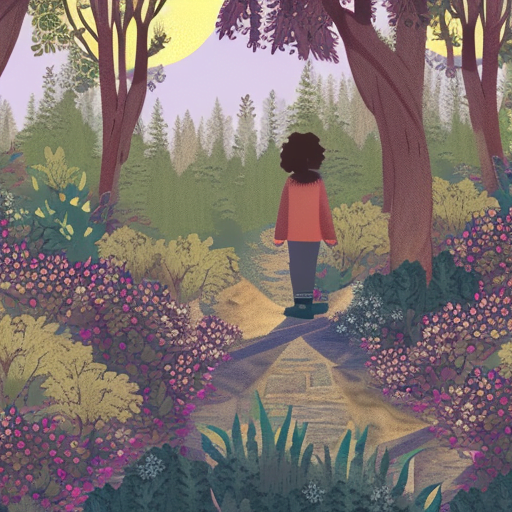
“Simply repeating customs and adapting past traditions are preserves of the lazy and unimaginative.”- Hannah Rothschild
Your capacity to think critically and make decisions may be restricted if you act according to prevailing beliefs, traditions, or norms. Additionally, it can obstruct your ability to think creatively and critically, as well as personal development and self-discovery.
You can be more open-minded and receptive to new possibilities by not acting in accordance with ingrained views. You will be free from being limited by what is regarded as the norm or what has always been done, and you will be able to think independently and make your own decisions. More innovation and advancement—both personally and professionally—can result from this.
Additionally, acting against conventional views frees oneself from cultural norms, preconceptions, biases, and prejudices. By overcoming these limiting ideas, you can become more honest, true to yourself, and assured in your skills and judgment.
It’s crucial to stress that this guideline does not imply that you must disregard all traditions or practices. Rather, you should assess them, question them, and be receptive to new ideas and change.
Rule 16: Do not collect weapons or practice with weapons beyond what is useful
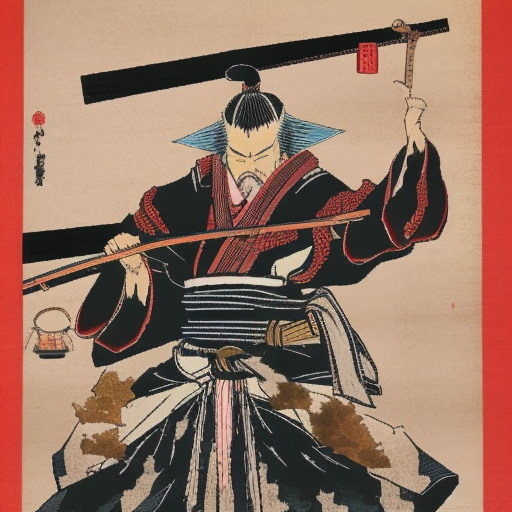
“Practice makes perfect. After a long time of practicing, our work will become natural, skillful, swift, and steady.” Bruce Lee
Collecting weapons or exercising with them for purposes other than self-defense can lead to an unhealthy fascination and connection to them. It can also take one’s attention away from more vital personal development and self-improvement aspects.
Furthermore, whether physical or metaphorical weapons, this rule applies to everything that is ineffective for achieving one’s goals or for self-defense.
Focusing on weapons in their correct context allows one to allocate their attention, energy, and money to more meaningful pursuits. Concentrating on developing other abilities, such as mental and physical discipline, self-control, mindfulness, and strategy, is preferable.
Furthermore, this guideline has a deeper meaning; it serves as a reminder to focus on internal power, inner wisdom, and self-awareness rather than outward instruments or goods. These genuine “weapons” can assist us in dealing with any challenge.
Furthermore, remember that this does not mean you should forgo knowing how to protect yourself; it only means that you should not go beyond what is essential and maintain the perspective of balance and proportionality.
“Things spoken can be forgotten and forgiven, but the written word has the power to change the course of history, to alter our lives.” Teresa Mummert
Rule 17: Do not fear death

“Death is not the greatest loss in life. The greatest loss is what dies inside us while we live.” – Norman Cousins
The fear of dying is a crippling mental block that keeps people from experiencing life to the fullest. Furthermore, it may prevent you from developing and learning about who you are.
Realizing that you will die and overcoming your fear frees you to enjoy life in the here and now. You can stop wasting your time and energy thinking about the future and instead pay attention to the important things to you and the goals you want to achieve.
Not dreading death or transition as something to be feared but accepted as part of life’s cycle is another possible interpretation of this guideline.
The realizing end is inevitable helps us make peace with our mortality and value our time here on Earth. In doing so, we can better understand how our words and deeds affect those around us and how we might give our lives greater significance.
Also, remember that this isn’t about refusing to acknowledge mortality; instead, it’s about facing death head-on, learning from the experience, and making the best of whatever the future holds.
“Every Man’s life ends the same way. It is only the details of how we lived and how we died that distinguish one man from another.” Ernest Hemingway
Rule 18: Do not seek to possess either goods or fiefs for your old age

“You must live in the present, launch yourself on every wave, and find your eternity in each moment. Fools stand on their island of opportunities and look toward another land. There is no other land; there is no other life but this.” Henry David Thoreau
A preoccupation with accumulating things or fiefs (property or land) for old age can lead to an unhealthy fixation on worldly belongings and divert one’s attention away from more vital pursuits, such as one’s own growth and development.
Living in the moment and making the most of your time is more accessible when you forego the pursuit of material possessions and retirement fiefdoms.
Focusing on what is important and what you want to achieve frees you from the burden of caring about amassing wealth or property. One of the main points of this guideline is to avoid becoming overly tied to external things in favor of developing one’s inner fortitude, wisdom, and self-awareness.
Having a retirement plan and financial security is still crucial; nonetheless, this guideline is a gentle reminder that these should not be the sole foci of one’s life. This thought can sidetrack you from developing, learning about yourself, and forming meaningful connections with others.
In addition, this regulation serves as a cautionary tale that money and success can’t buy you contentment, satisfaction, or meaning in life.
Rule 19: Respect Buddha and the gods without counting on their help
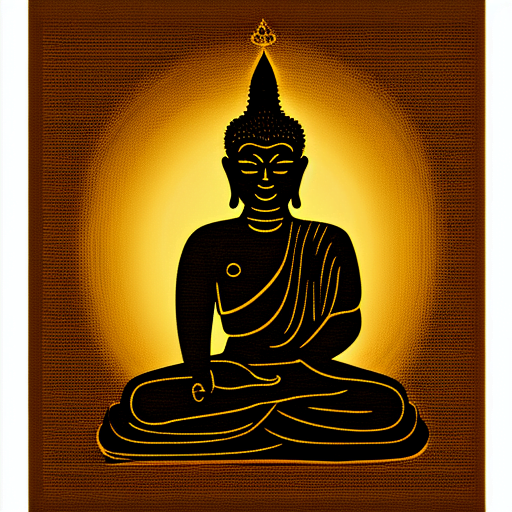
“I feel like God is waiting to see if I am waiting. If he had just flooded in with answers and guidance right now, I would not have changed; I would not have learned to wait and trust without the answers and without a road map for the future. So I’m kind of glad that God was silent because I actually want to wait; I want to prove my mettle to God. I don’t necessarily want ease and instant anything anymore.” – Pete Greig
Self-discovery and growth need respecting Buddha, gods, or other spiritual or religious beliefs. However, one should refrain from using these ideas as a crutch or for direction instead of taking responsibility for one’s actions and decisions.
You can develop self-reliance, self-responsibility, and inner power by appreciating Buddha and the gods but not depending on them. This will help you choose, overcome, and discover meaning in life. It will also help you develop self-awareness and not rely on external forces to make decisions.
This rule applies to all faiths. Respect and honor other cultural, political, and ideological perspectives, but make decisions based on your values and ideals.
Respect doesn’t mean mindless obedience—acknowledging and appreciating diverse views’ wisdom, lessons, and values and incorporating the valuable parts into one’s own philosophy.
“Belief will open the door, faith will help you see the light, but trust will give you lasting peace.” – Charles F Glassman
Rule 20: You may abandon your own body, but you must preserve your honor
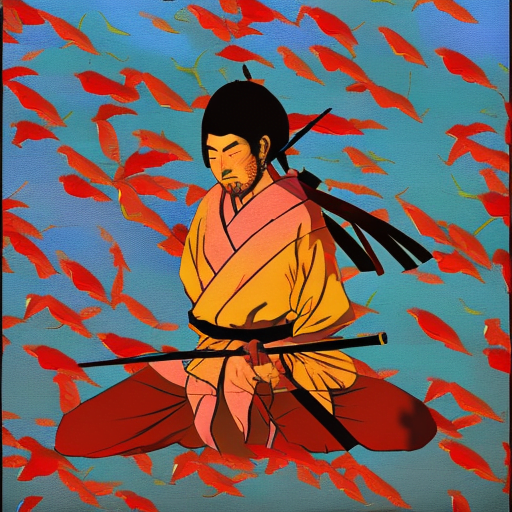
“The difference between a moral man and a man of honor is that the latter regrets a discreditable act, even when it has worked, and he has not been caught.” H. L. Mencken
The rule emphasizes personal integrity even under dangerous circumstances. It entails upholding one’s ideals and values through hardships.
Honor enables you to maintain your dignity and prevents you from compromising your beliefs to get temporary advantages or get out of trouble. Reputation and esteem will improve as a result.
This commandment also refers to upholding morals, self-respect, and decency in extreme circumstances or physical hardship. It is about not giving in to fear or outside pressure but instead standing up for what is right and being loyal to oneself.
In all spheres of life, both personal and professional, honor and integrity should be a philosophy, attitude, and daily practice.
Respect doesn’t mean blindly following orders; it means respecting the wisdom, teachings, and values of various points of view and incorporating the essential elements into one’s own philosophy.
“Rather fail with honor than succeed by fraud.” Sophocles
Rule 21: Never stray from the way

“The path of the Warrior is lifelong, and mastery is often simply staying on the path.”- Richard Strozzi
Last, but not least, remember to always act following who you are and what you want to accomplish; don’t veer off course. Focusing on one’s development and evolution in the face of temptations and setbacks is central to this concept. Avoid letting distractions or second-guessing from others cause you to waver from your core values and principles.
We’ll inevitably encounter difficulties along the way. Yet, this guideline reminds us to persevere, never losing sight of the end goal. We must remember our original motivation for this trip to continue pushing on until we attain our goal.
Remember that the way is not a predetermined destination but a journey that will develop and alter with you. This necessitates a flexible mindset, willing to change when new experiences present themselves. It serves as a gentle reminder to embrace change rather than resist it.
This final guideline is a gentle reminder to be ourselves, to keep motivated, and to avoid distractions while remaining open to change and new chances.
“When one has reached maturity in the art, one will have a formless form. It is like ice dissolving in water. When one has no form, one can be all forms; when one has no style, he can fit in with any style.”-Bruce Lee
Conclusion
“Nothing outside of yourself can enable you to get better, stronger, richer, quicker, or smarter. Everything is within.
The book “21 Rules for Life” by Miyamoto Musashi – “Way of Walking Alone | Dokkodo,” is a call to action for personal development. It has been asserted that the book encourages its readers to develop self-discipline, self-awareness, and self-reliance.
Self-discipline is the cultivation of one’s own potential apart from external influences. Maintaining composure, paying close attention, and being moderate are all emphasized at various points in one’s development.
Self-awareness is to consider one’s own point of view, values, and ideals without the constraints of social norms, prejudices, or biases. Truthfulness and self-assurance are bolstered.
Responsibility, independence, and fortitude are encouraged in the book Self-Reliance. It encourages individuals to forge their paths through life, finding answers to the big questions.
F.A.Q. about “21 Rules for Life” by Miyamoto Musashi
What does Dokkodo stand for?
Dokkodo is a code of conduct created by Miyamoto Musashi, a legendary samurai, philosopher, and writer. It consists of 21 meaningful life principles and is often called “The Way of Walking Alone.”
What are some of the principles of Dokkodo?
Some of the principles of Dokkodo include accepting everything just the way it is, not seeking pleasure for its own sake, not being attached to material possessions, and not regretting the past or fearing death.
Is “21 Rules for Life” a summary or a full book?
“21 Rules for Life” is a book summary or resume of Miyamoto Musashi‘s original work called Dokkodo. The purpose of the summary is to provide a general overview of the book’s main ideas and themes and encourage readers to read the original work.
What can I learn from “21 Rules for Life”?
“21 Rules for Life” offers insights into Miyamoto Musashi‘s philosophy and practical advice for living a meaningful life. By following the principles of Dokkodo, readers can learn how to cultivate inner strength, wisdom, and resilience.
Quotes from “21 Rules for Life” by Miyamoto Musashi
“Accept everything just the way it is. Do not seek pleasure for its own sake. Do not, under any circumstances, depend on a partial feeling. Think lightly of yourself and deeply of the world. Be detached from desire your whole life long. Do not regret what you have done. Never be jealous.”
“Control your anger. If you hold anger toward others, they have control over you. Your opponent can dominate and defeat you if you allow him to get you irritated.”
“The path that leads to truth is littered with the bodies of the ignorant.”
“Do not waste time idling or thinking after you have set your goals.”
“Perceive that which cannot be seen with the eye.”
“Know your enemy, know his sword.”
“The true science of martial arts means practicing them in such a way that they will be useful at any time, and to teach them in such a way that they will be useful in all things.”
“The mind must always be in the state of ‘flowing,’ for when it stops anywhere that means the flow is interrupted and it is this interruption that is injurious to the well-being of the mind.”
“One must abandon one’s own body like a discarded garment.”
“You must understand that there is more than one path to the top of the mountain.”

“Do nothing which is of no use.”
— Miyamoto Musashi
You can read Miyamoto Musashi‘s Biography by clicking the image below. Enjoy!
Disclaimer: This blog post is a summary or resume of the book and is not intended to dispense the reading of the original book. This post aims to provide a general overview of the book’s main ideas and themes and encourage readers to read the complete book to gain a deeper understanding of the material. The information presented in this post is intended to be something other than a substitute for the original book and should be used as a supplement to, not a replacement for, the entire book. We strongly encourage readers to read the complete book to benefit from its ideas and teachings fully.

